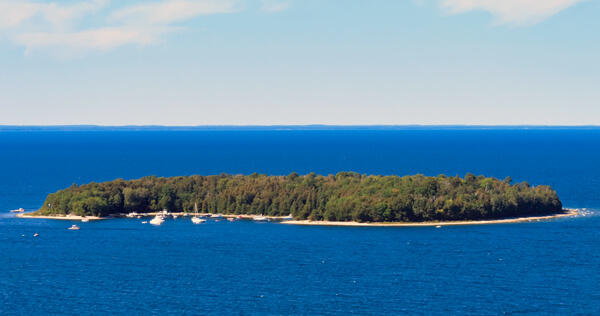
Islands, large and small, can be found in many of Michigan’s rivers and inland lakes. Some islands are just large enough to support a couple of trees and others boast spectacular homes or resorts. Big or small, islands are often used by members of the boating public for sunbathing or other recreation. The public may not understand that islands, though surrounded by water accessible to the public, are not public property.
In Michigan a person who owns land on an inland lake or stream owns the “riparian bottomlands” to the center of the waterbody. How such bottomlands are apportioned among riparian owners is beyond the scope of a blog post, but was discussed previously on this site. The laws concerning Great Lakes islands and bottomlands are different, and therefore not addressed herein.
Around the time Michigan became a state the federal government did a survey, sometimes referred to as the “original survey” or GLO survey. In some instances islands were substantial enough to warrant separate description and may have become the subject of a patent or grant to a private individual. In most instances, existing islands were not separately surveyed or transferred. Title to such unsurveyed islands therefore passes to the adjacent riparian owner(s) who owns the bottomlands beneath the island. However small, unimproved or seemingly insignificant all islands in inland lakes or rivers are owned by someone. Though surrounded by publicly accessible waters, as private property they may not lawfully be used for public recreational purposes.
Many of those who own islands don’t mind passive recreational use of the island or its beaches. Unfortunately, members of the public often leave more than footprints behind and refuse to respect the private property rights of the owner. One of the most fundamental of private property rights is the right to exclude others from your property; that right is not diminished simply because the land may be an island. Those not respecting the private property rights of an island owner could face civil or criminal liability for trespass. Don’t confuse your right to use the surface of the water with the use of land surrounded by such water.
